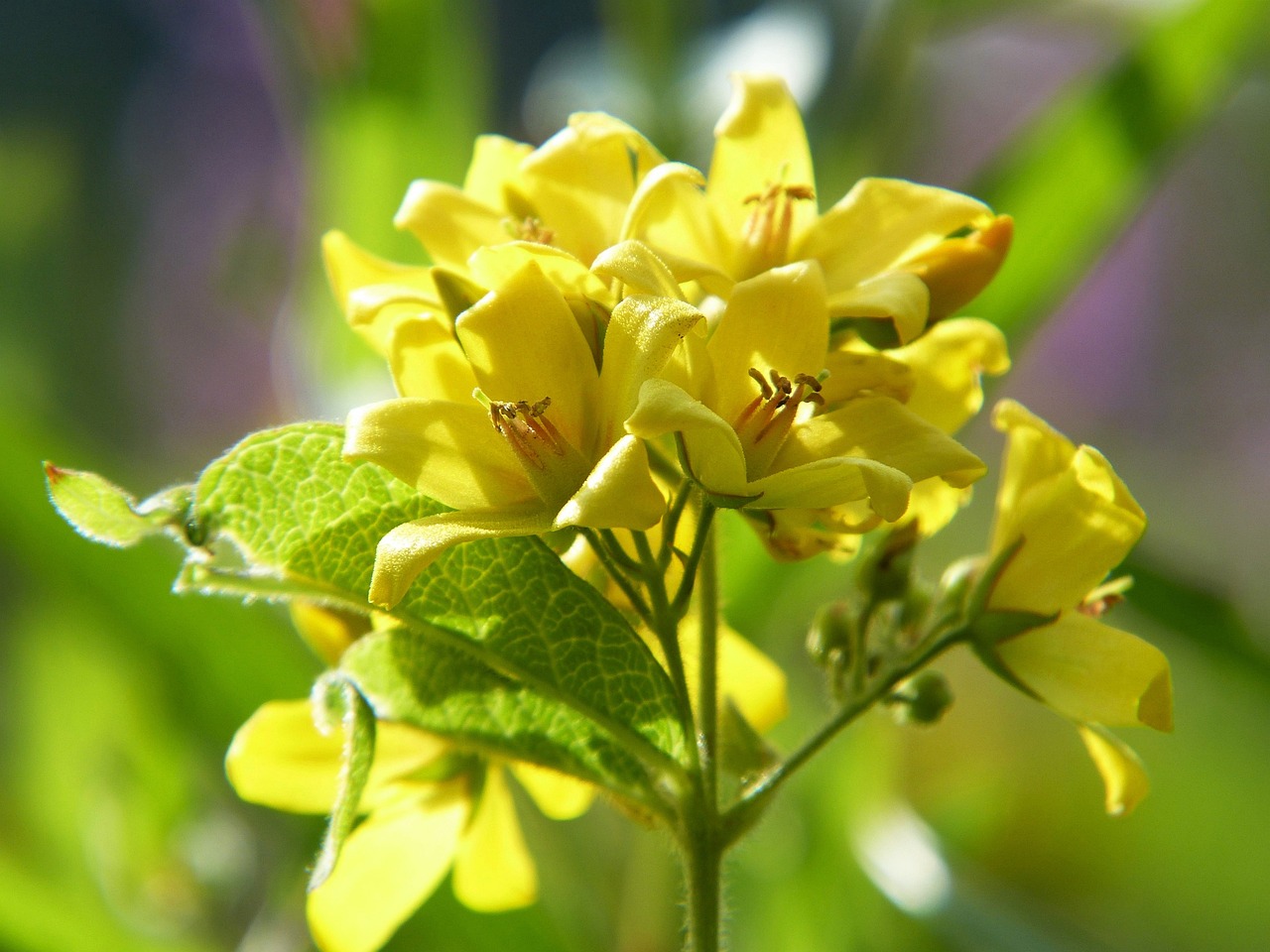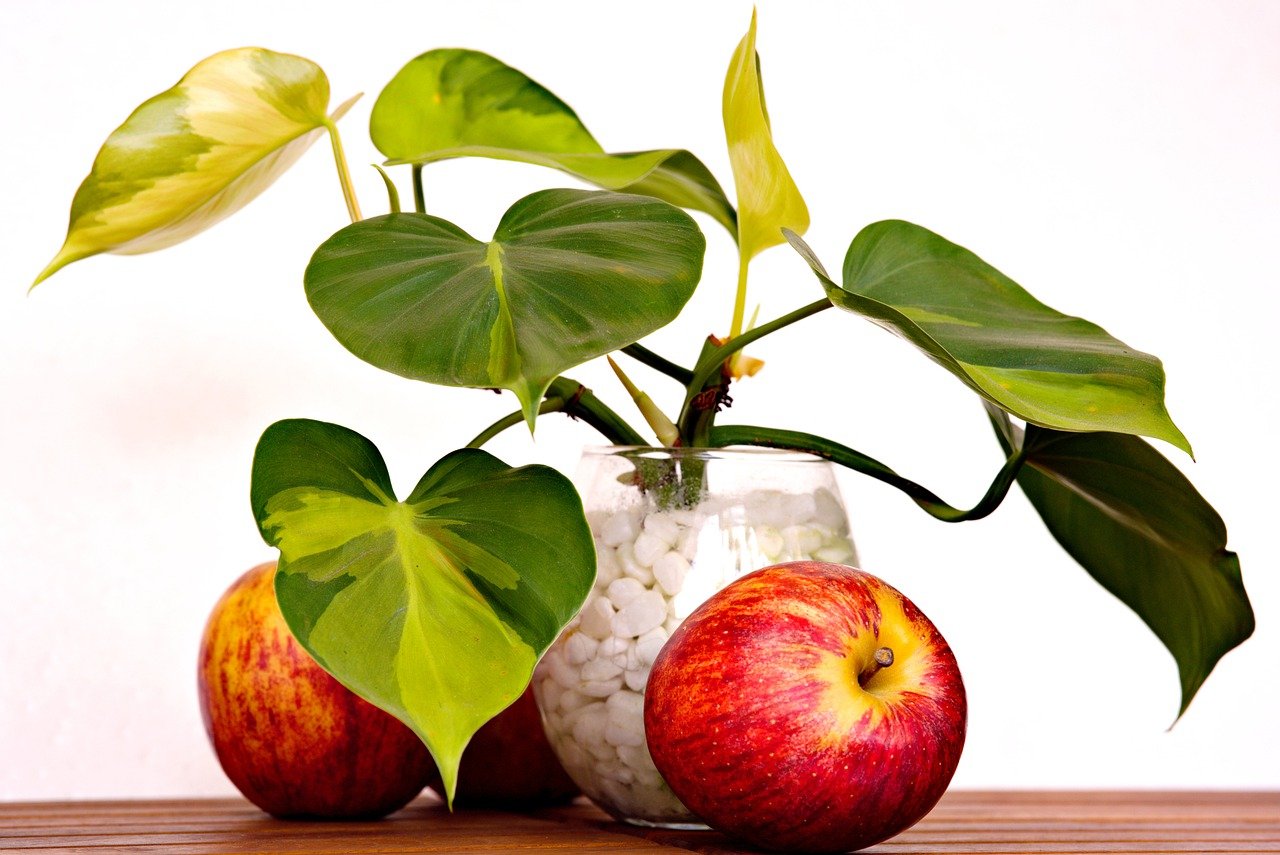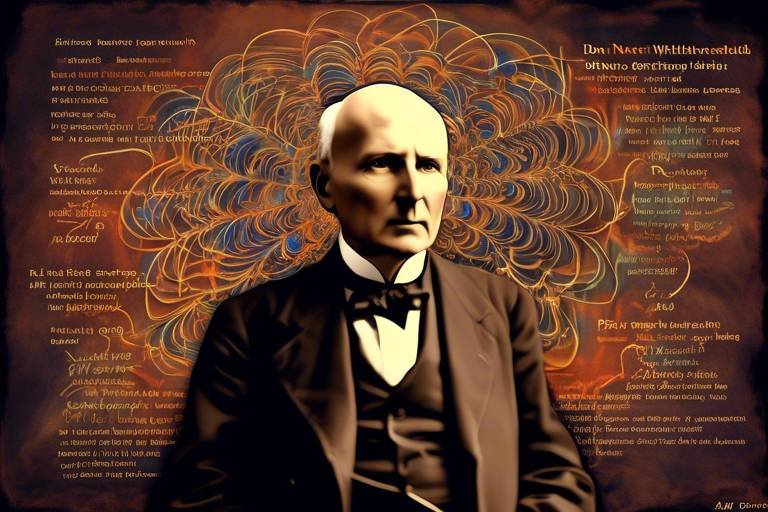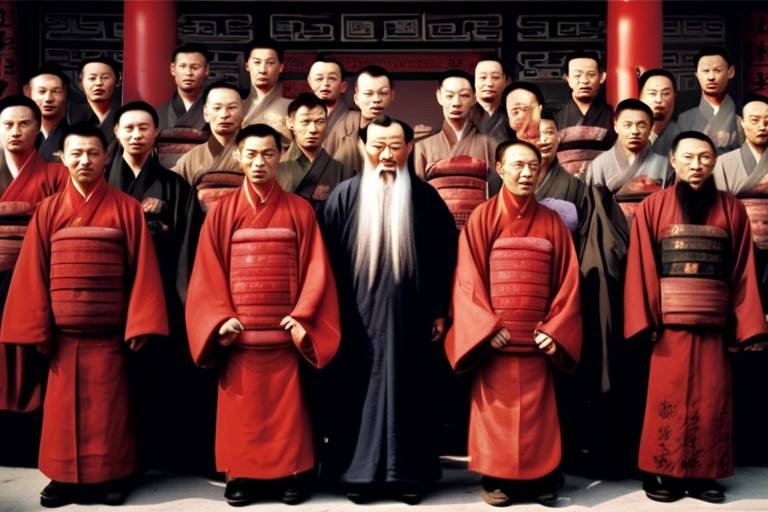Life Lessons from Seneca’s On the Shortness of Life
In a world that often feels like it’s racing by, Seneca's essay, On the Shortness of Life, serves as a timeless reminder of the importance of time, purpose, and the art of living meaningfully. Imagine sitting down with a wise old friend who has seen it all, sharing insights that could transform your approach to life. That’s exactly what Seneca offers us—a chance to pause, reflect, and reevaluate how we spend our precious moments. His words resonate deeply, urging us to embrace life with intention and awareness, rather than letting it slip through our fingers like sand.
Seneca’s reflections challenge us to consider the value of time in our lives. He emphasizes that it is our most precious resource, more valuable than gold or silver, and yet, it is often squandered on trivial pursuits. How often do we find ourselves caught up in the hustle and bustle, distracted by the noise of everyday life? Seneca encourages us to recognize the fleeting nature of time and to use it wisely for personal growth and fulfillment. By understanding that each moment is an opportunity, we can begin to prioritize what truly matters.
Moreover, Seneca advocates for living in the present. He reminds us that the past is behind us and the future is uncertain, so why not focus on the here and now? This philosophy of mindfulness invites us to immerse ourselves in our current experiences fully. Imagine savoring a cup of coffee, feeling the warmth of the mug in your hands, and truly tasting each sip. Such moments, when fully appreciated, can bring immense joy and fulfillment.
Seneca emphasizes that time is our most precious resource, urging us to recognize its fleeting nature and to use it wisely for personal growth and fulfillment.
The essay advocates for the importance of mindfulness, encouraging us to focus on the present moment rather than being consumed by the past or future.
Incorporating mindfulness techniques can help us appreciate life’s moments, fostering a deeper connection to our experiences and enhancing our overall well-being. Techniques like meditation, deep breathing, and mindful walking can ground us in the present, allowing us to savor life rather than rush through it.
Engaging in daily reflections allows us to evaluate how we spend our time, promoting intentional living and greater self-awareness. Take a few minutes each evening to consider what you accomplished and how you felt throughout the day. This simple practice can illuminate patterns in your behavior and help you make more conscious choices.
Keeping a gratitude journal can cultivate appreciation for the present, helping us to recognize the value of each day. By jotting down just three things you are grateful for each day, you shift your focus from what you lack to what you have, fostering a more positive outlook on life.
Identifying and minimizing distractions is crucial for living fully in the moment, allowing us to dedicate our time to what truly matters. In our hyper-connected world, distractions are everywhere, from social media notifications to constant emails. By setting boundaries and creating a focused environment, we can reclaim our time and attention.
Seneca argues that understanding our purpose is key to a fulfilling life, guiding our actions and decisions towards meaningful achievements. Without a clear sense of direction, it’s easy to drift aimlessly, wasting time on activities that don’t align with our true values.
Setting clear, achievable goals helps align our daily activities with our long-term aspirations, fostering a sense of purpose. Whether it’s pursuing a career, nurturing relationships, or engaging in hobbies, having a roadmap for your life can provide motivation and clarity.
Philosophy serves as a tool for self-examination, encouraging us to ponder our values and the legacy we wish to leave behind. By contemplating life's big questions, we can uncover what truly matters to us, guiding our choices and actions.
Seneca reminds us that many aspects of life are beyond our control; acceptance of this reality can lead to greater peace and contentment. Instead of fighting against the tide, we can learn to navigate life’s uncertainties with grace.
Learning to embrace uncertainty allows us to navigate life’s challenges with resilience and adaptability, fostering personal growth. Life is unpredictable, and by accepting this, we can respond more effectively to whatever comes our way.
By letting go of unnecessary worries, we can focus on what we can influence, enhancing our overall mental well-being. Stressing over things we cannot change only drains our energy; instead, let’s channel that energy into what we can control.
Seneca posits that contemplating death can inspire us to live more fully, motivating us to prioritize what truly matters in our lives. The thought of our mortality can be daunting, but it can also serve as a powerful motivator to make the most of our time.
Reframing our fear of death can empower us to take risks and pursue our passions without hesitation. Instead of viewing death as an end, we can see it as a reminder to live boldly and authentically.
Considering the legacy we leave behind encourages us to act with intention, ensuring our lives have a positive impact on others. What do you want to be remembered for? Reflecting on this question can guide your actions and decisions, helping you live a life that aligns with your values.
In conclusion, Seneca’s insights remind us to cherish our time, live with purpose, and cultivate mindfulness, ultimately leading to a more fulfilling and meaningful existence. Life is fleeting, and by embracing its transience, we can create a life rich with experiences, connections, and joy.
- What is the main message of Seneca's essay? Seneca emphasizes the importance of valuing time and living meaningfully, urging readers to focus on the present and understand their purpose.
- How can I practice mindfulness? Techniques such as meditation, deep breathing, and daily reflections can help you cultivate mindfulness and appreciate the present moment.
- Why is it important to understand my purpose? Understanding your purpose aligns your actions with your values, leading to a more fulfilling and intentional life.
- How can I let go of worry? Focus on what you can control, practice gratitude, and embrace uncertainty to reduce unnecessary worries.

On the Shortness of Life,
This article explores the profound insights offered by Seneca in his essay, On the Shortness of Life, emphasizing the importance of time, purpose, and the art of living meaningfully.
Seneca emphasizes that time is our most precious resource, urging us to recognize its fleeting nature and to use it wisely for personal growth and fulfillment. In today's fast-paced world, it's easy to get caught up in the hustle and bustle, forgetting that each moment is a gift. Have you ever found yourself scrolling through social media for hours, only to realize that time has slipped away? This is exactly what Seneca warns against. By consciously valuing our time, we can make choices that align with our true desires and aspirations.
The essay advocates for the importance of mindfulness, encouraging us to focus on the present moment rather than being consumed by the past or future. Living in the present is not just a trendy catchphrase; it's a way to truly engage with life. Imagine savoring your morning coffee, feeling the warmth of the cup in your hands, and appreciating the aroma. This simple act can transform your day. Mindfulness allows us to experience life fully, and it's a skill we can cultivate.
Incorporating mindfulness techniques can help us appreciate life’s moments, fostering a deeper connection to our experiences and enhancing our overall well-being. Techniques like meditation, deep breathing, or even a quiet walk in nature can ground us. When we practice being present, we can reduce stress and increase happiness. Here are a few practices to consider:
- Meditation: Spend a few minutes each day focusing on your breath.
- Mindful Eating: Take time to enjoy your meals without distractions.
- Nature Walks: Immerse yourself in the sights and sounds around you.
Engaging in daily reflections allows us to evaluate how we spend our time, promoting intentional living and greater self-awareness. By taking a moment each evening to reflect on your day, you can identify what brought you joy and what didn’t. This practice not only enhances our understanding of ourselves but also helps us adjust our priorities moving forward.
Keeping a gratitude journal can cultivate appreciation for the present, helping us to recognize the value of each day. Writing down things you are thankful for can shift your perspective and encourage a more positive outlook on life. It’s a simple yet powerful way to remind ourselves of the abundance that surrounds us.
Identifying and minimizing distractions is crucial for living fully in the moment, allowing us to dedicate our time to what truly matters. In a world filled with notifications and constant interruptions, it’s essential to create boundaries. Consider setting specific times to check emails or social media, so you can focus on your priorities without being sidetracked.
Seneca argues that understanding our purpose is key to a fulfilling life, guiding our actions and decisions towards meaningful achievements. When we have a clear sense of purpose, it acts like a compass, directing us toward our goals and aspirations. Ask yourself: What truly matters to me? What legacy do I want to leave behind?
Setting clear, achievable goals helps align our daily activities with our long-term aspirations, fostering a sense of purpose. Break down your larger dreams into smaller, actionable steps. This not only makes your goals more attainable but also provides a sense of accomplishment along the way.
Philosophy serves as a tool for self-examination, encouraging us to ponder our values and the legacy we wish to leave behind. By engaging with philosophical ideas, we can gain insights into our lives and make more informed choices. It’s like having a personal mentor guiding you through life’s complexities.
Seneca reminds us that many aspects of life are beyond our control; acceptance of this reality can lead to greater peace and contentment. Instead of worrying about what we can't change, we should focus on our reactions and how we can adapt. This shift in mindset can be liberating.
Learning to embrace uncertainty allows us to navigate life’s challenges with resilience and adaptability, fostering personal growth. Life is unpredictable, and that’s what makes it exciting! By accepting that uncertainty is a part of life, we can cultivate a sense of adventure and openness.
By letting go of unnecessary worries, we can focus on what we can influence, enhancing our overall mental well-being. Instead of dwelling on potential problems, redirect your energy toward positive actions. This not only improves your mood but also empowers you to take charge of your life.
Seneca posits that contemplating death can inspire us to live more fully, motivating us to prioritize what truly matters in our lives. It may sound morbid, but thinking about our mortality can actually be a catalyst for change. It encourages us to seize the day and make the most of our time.
Reframing our fear of death can empower us to take risks and pursue our passions without hesitation. Instead of viewing death as an end, see it as a reminder to live boldly. What would you do differently if you knew you had limited time? This perspective can ignite a fire within you to chase your dreams.
Considering the legacy we leave behind encourages us to act with intention, ensuring our lives have a positive impact on others. Think about the mark you want to leave on the world. Whether it’s through your career, relationships, or community involvement, every action contributes to your legacy.
In conclusion, Seneca’s insights remind us to cherish our time, live with purpose, and cultivate mindfulness, ultimately leading to a more fulfilling and meaningful existence. Life is short, and every moment counts. So, let’s make the most of it!
- What is the main message of Seneca's essay? Seneca emphasizes the importance of valuing time and living purposefully.
- How can I practice mindfulness? Techniques include meditation, mindful eating, and nature walks.
- Why is it important to consider our mortality? Contemplating death can motivate us to prioritize what truly matters in life.

emphasizing the importance of time, purpose, and the art of living meaningfully.
This article explores the profound insights offered by Seneca in his essay, On the Shortness of Life, emphasizing the importance of time, purpose, and the art of living meaningfully.
Seneca emphasizes that time is our most precious resource, urging us to recognize its fleeting nature and to use it wisely for personal growth and fulfillment.
The essay advocates for the importance of mindfulness, encouraging us to focus on the present moment rather than being consumed by the past or future.
Incorporating mindfulness techniques can help us appreciate life’s moments, fostering a deeper connection to our experiences and enhancing our overall well-being.
Engaging in daily reflections allows us to evaluate how we spend our time, promoting intentional living and greater self-awareness.
Keeping a gratitude journal can cultivate appreciation for the present, helping us to recognize the value of each day.
Identifying and minimizing distractions is crucial for living fully in the moment, allowing us to dedicate our time to what truly matters.
Seneca argues that understanding our purpose is key to a fulfilling life, guiding our actions and decisions towards meaningful achievements.
Setting clear, achievable goals helps align our daily activities with our long-term aspirations, fostering a sense of purpose.
Philosophy serves as a tool for self-examination, encouraging us to ponder our values and the legacy we wish to leave behind.
Seneca reminds us that many aspects of life are beyond our control; acceptance of this reality can lead to greater peace and contentment.
Learning to embrace uncertainty allows us to navigate life’s challenges with resilience and adaptability, fostering personal growth.
By letting go of unnecessary worries, we can focus on what we can influence, enhancing our overall mental well-being.
Seneca posits that contemplating death can inspire us to live more fully, motivating us to prioritize what truly matters in our lives.
Reframing our fear of death can empower us to take risks and pursue our passions without hesitation.
Considering the legacy we leave behind encourages us to act with intention, ensuring our lives have a positive impact on others.
In conclusion, Seneca’s insights remind us to cherish our time, live with purpose, and cultivate mindfulness, ultimately leading to a more fulfilling and meaningful existence.
In our fast-paced world, it’s easy to lose sight of what truly matters. Time is not just a ticking clock; it’s the canvas upon which we paint our lives. Seneca reminds us that every moment is a brushstroke, and we have the power to create a masterpiece or let it fade into a blur of wasted opportunities. When we recognize the value of time, we begin to see it as a precious gift rather than a commodity to be squandered.
But what gives our time meaning? The answer lies in purpose. Living without purpose is like wandering through a maze without a map. We may find ourselves moving, but are we truly going anywhere? Seneca urges us to ask ourselves: What do we want to achieve? What legacy do we wish to leave behind? By defining our goals and aligning our actions with them, we can transform mere existence into a life filled with intention and significance.
Moreover, the art of living meaningfully is not just about achieving goals; it’s about savoring the journey. It’s about finding joy in the small things—a sunrise, a laugh with friends, or a moment of stillness. When we embrace each day with gratitude and awareness, we cultivate a rich tapestry of experiences that enrich our lives. This approach not only enhances our well-being but also deepens our connections with others, fostering a sense of community and belonging.
In essence, Seneca's teachings challenge us to rethink how we perceive time and purpose. By embracing the present, setting meaningful goals, and cultivating gratitude, we can truly live—not just exist. As we navigate through life, let’s remember that every moment counts, and it’s up to us to make it count for something.
- What is the main message of Seneca's essay?
Seneca emphasizes the importance of valuing time, living with purpose, and embracing the present to lead a meaningful life.
- How can I practice mindfulness in my daily life?
Incorporating techniques such as meditation, deep breathing, and daily reflections can help you stay present and appreciate life’s moments.
- Why is understanding purpose important?
Understanding your purpose aligns your actions with your values, guiding you towards fulfilling and meaningful achievements.
- How can I let go of worries?
Focus on what you can control, practice mindfulness, and engage in positive self-talk to reduce unnecessary worries.
- What role does death play in living a meaningful life?
Contemplating death can inspire you to prioritize what truly matters and encourage you to live fully without hesitation.

The Value of Time
Seneca emphasizes that time is our most precious resource, urging us to recognize its fleeting nature and to use it wisely for personal growth and fulfillment. Have you ever felt like time just slips away, leaving you wondering where the hours went? It's a common experience, and Seneca's teachings offer profound insights into this dilemma. He argues that many people waste their time on trivial pursuits, allowing the days to pass without any meaningful engagement. Instead, he encourages us to take a step back and evaluate how we allocate our most valuable asset—our time.
Imagine time as a river, flowing steadily and inevitably. Each moment that passes is like a drop of water that can never be reclaimed. Therefore, it’s crucial to ask ourselves: What do we want to achieve with the time we have? By prioritizing our goals and focusing on what truly matters, we can ensure that our time is spent wisely. Seneca suggests that we should not only be aware of how we spend our time but also strive to fill it with activities that enrich our lives. This means seeking out experiences that foster growth, joy, and connection.
To illustrate this point, consider the following table that highlights common time-wasting activities versus more fulfilling alternatives:
| Time-Wasting Activities | Fulfilling Alternatives |
|---|---|
| Scrolling through social media for hours | Engaging in a hobby or learning a new skill |
| Binge-watching TV shows | Reading a book or attending a workshop |
| Procrastinating on important tasks | Setting small, achievable goals to stay productive |
| Participating in gossip or negative conversations | Having meaningful discussions with friends or mentors |
By consciously choosing how we spend our time, we can transform our lives. Time management is not just about scheduling; it's about making deliberate choices that align with our values and aspirations. Seneca’s wisdom reminds us that every moment is an opportunity to grow, connect, and create a life filled with purpose. So, the next time you find yourself caught in a cycle of unproductive habits, ask yourself: Is this how I want to spend my time? By reflecting on this question, we can steer our lives in a more fulfilling direction.
In essence, recognizing the value of time is the first step toward living a more meaningful life. It's about making the most of every day, every hour, and every minute. After all, as Seneca famously said, “It is not that we have a short time to live, but that we waste a lot of it.” So let's commit to living with intention, ensuring that our time is spent in ways that bring us closer to our goals and enrich our experiences.

Living in the Present
In his profound essay, On the Shortness of Life, Seneca emphasizes the importance of living in the present moment. It's all too easy to get caught up in the whirlwind of our daily lives, constantly worrying about the past or fretting over the future. But what if we shifted our focus? What if we embraced the now? By doing so, we can unlock a treasure trove of experiences and joy that often goes unnoticed. Living in the present isn't just a nice idea; it's a necessity for a fulfilling life.
One of the most effective ways to cultivate this sense of presence is through mindfulness. Mindfulness practices encourage us to fully engage with our current experiences, whether it’s savoring a delicious meal, enjoying a conversation with a friend, or simply taking a moment to appreciate nature. By practicing mindfulness, we can develop a deeper connection to our lives, enhancing our overall well-being. Imagine sitting in a park, feeling the warmth of the sun on your skin, and noticing the rustle of leaves in the breeze. This simple act of awareness can transform an ordinary moment into something extraordinary.
Incorporating mindfulness into our daily routines can be as simple as taking a few deep breaths or setting aside time for meditation. Here are a few techniques that can help:
- Breath Awareness: Focus on your breath for a few minutes. Notice how it feels as you inhale and exhale, bringing your attention back whenever your mind wanders.
- Body Scan: Take a moment to mentally scan your body from head to toe, noticing any sensations or tension. This practice can ground you in the present.
- Mindful Eating: During meals, try to eat slowly and savor each bite. Pay attention to the flavors, textures, and aromas of your food.
Another powerful tool for living in the present is engaging in daily reflections. By taking a few moments each day to evaluate how we spend our time, we can promote intentional living. Ask yourself questions like, “Did I spend my time on what truly matters today?” or “What moments brought me joy?” This practice can increase our self-awareness and guide us toward making better choices in the future.
Daily reflections can be as simple as jotting down your thoughts in a journal or taking a moment to meditate on your day before bed. This practice allows us to celebrate our successes, learn from our experiences, and set intentions for the next day. It’s a powerful way to stay connected to our goals and values, ensuring that we remain aligned with what genuinely matters to us.
Another enriching practice is gratitude journaling. Keeping a gratitude journal helps cultivate appreciation for the present moment. Each day, take a few minutes to write down three things you are grateful for. This simple act can shift your mindset, allowing you to recognize the beauty in everyday life. Over time, you’ll find that focusing on gratitude enhances your overall outlook, making it easier to embrace the present.
However, living in the present also means overcoming distractions that pull us away from the now. In our fast-paced world, distractions are everywhere—social media, notifications, and endless to-do lists can easily derail our focus. Identifying and minimizing these distractions is crucial for living fully in the moment. Consider setting aside specific times for checking emails or social media, so you can dedicate uninterrupted time to what truly matters.
By consciously choosing to limit distractions, we can create space for more meaningful experiences. Imagine dedicating an hour to a hobby you love or spending quality time with family without the constant buzz of your phone. These moments of presence can significantly enhance our quality of life, making each day more fulfilling.
In conclusion, living in the present is not just a philosophical idea; it’s a practice that can transform our lives. By embracing mindfulness, engaging in daily reflections, and overcoming distractions, we can cultivate a deeper appreciation for each moment. So, take a deep breath, look around, and immerse yourself in the beauty of now. It’s the only time we truly have.
- What is mindfulness? Mindfulness is the practice of being fully present and engaged in the moment, without judgment. It helps us appreciate our experiences and reduces stress.
- How can I start practicing gratitude journaling? Simply set aside a few minutes each day to write down three things you are grateful for. It can be as simple as a warm cup of coffee or a kind word from a friend.
- What are some common distractions to avoid? Common distractions include excessive screen time, notifications from apps, and multitasking. Identifying these can help you focus better on the present.

Mindfulness Practices
In a world filled with constant distractions and noise, serve as an anchor that helps us reconnect with the present moment. Imagine being a ship lost at sea, tossed around by waves of anxiety and worry. Mindfulness is like finding a lighthouse that guides you back to calm waters. By incorporating mindfulness into our daily routines, we can cultivate a deeper appreciation for life’s fleeting moments. This not only enhances our overall well-being but also fosters a stronger connection to our experiences.
One effective way to practice mindfulness is through meditation. Just a few minutes a day can create a significant shift in your mental landscape. Picture sitting quietly, focusing on your breath, and allowing thoughts to drift by like clouds in the sky. This practice can help clear the mental clutter, making way for clarity and peace. Research shows that regular meditation can lead to reduced stress and improved emotional health.
Another powerful mindfulness technique is mindful walking. This isn’t just about putting one foot in front of the other; it’s about immersing yourself in the experience of walking. Feel the ground beneath your feet, notice the rhythm of your breath, and observe the world around you. Are the leaves rustling in the breeze? Is the sun warming your face? Engaging your senses in this way brings you back to the present and helps you appreciate the beauty of the world.
To further enhance your mindfulness journey, consider keeping a mindfulness journal. This is a space where you can jot down your thoughts, feelings, and experiences. Reflecting on your day allows you to identify moments of mindfulness and recognize areas where you may need to refocus. It’s like having a personal coach guiding you on your path to living intentionally. You might even find it helpful to create a table in your journal to track your mindfulness practices:
| Date | Practice | Duration | Reflection |
|---|---|---|---|
| 2023-10-01 | Meditation | 10 minutes | Felt calm and focused |
| 2023-10-02 | Mindful Walking | 15 minutes | Noticed the beauty in nature |
| 2023-10-03 | Mindfulness Journal | 5 minutes | Reflected on my day |
Lastly, don’t underestimate the power of deep breathing exercises. When you find yourself overwhelmed, take a moment to breathe deeply. Inhale for a count of four, hold for four, and exhale for a count of six. This simple practice can ground you and bring you back to the present. It’s like a reset button for your mind and body, allowing you to approach your day with renewed energy and focus.
Incorporating these mindfulness practices into your life can transform your day-to-day experiences. By being present, you not only enhance your own life but also create a ripple effect that positively influences those around you. So, why not give it a try? After all, life is too short to be anything but fully engaged in the here and now.
- What is mindfulness? Mindfulness is the practice of being fully present in the moment, aware of your thoughts and feelings without judgment.
- How can I start practicing mindfulness? You can start with simple techniques like meditation, mindful walking, or deep breathing exercises.
- How often should I practice mindfulness? Consistency is key! Aim for a few minutes daily, and gradually increase the time as you become more comfortable.
- Can mindfulness help reduce stress? Yes, numerous studies have shown that mindfulness practices can significantly reduce stress and improve emotional well-being.

Daily Reflections
Engaging in is more than just a routine; it’s a powerful practice that allows us to take a step back and evaluate our lives. Imagine sitting quietly at the end of each day, perhaps with a warm cup of tea, and pondering the moments that shaped your day. This simple act can lead to profound insights about how we spend our time and the choices we make. By reflecting on our daily experiences, we can identify patterns in our behavior, recognize what truly matters to us, and adjust our actions accordingly.
Daily reflections encourage us to ask ourselves important questions, such as:
- What did I accomplish today that brought me joy?
- Were there moments I felt particularly fulfilled or dissatisfied?
- How did I spend my time? Was it aligned with my values and goals?
These questions can guide us toward a more intentional life. By evaluating our daily actions, we can make conscious decisions about how to allocate our time in the future. For instance, if we notice that we spent hours scrolling through social media instead of engaging in meaningful conversations with loved ones, we can adjust our habits. This self-awareness fosters a sense of responsibility for our time, reminding us that it is a limited resource that should be cherished.
Moreover, incorporating a simple journaling practice can enhance our reflections. A dedicated journal for daily reflections allows us to write down our thoughts, feelings, and observations, creating a tangible record of our journey. It can serve as a reminder of our growth over time and help us track the evolution of our priorities and goals. Just imagine flipping back through your journal months later and seeing how far you’ve come! This practice not only reinforces our learning but also brings a sense of accomplishment.
In essence, daily reflections are a form of self-care. They provide us with the opportunity to pause, breathe, and truly consider the life we are leading. By committing to this practice, we cultivate a deeper connection to our experiences, paving the way for a more meaningful existence. So, why not start today? Grab a notebook, find a cozy spot, and let your thoughts flow. You might be surprised at what you discover about yourself.
Q: How can I start a daily reflection practice?
A: Begin by setting aside a few minutes each day, preferably at the same time, to reflect on your experiences. You can write in a journal or simply think about your day. Ask yourself questions about what went well and what you might want to change.
Q: Do I need to write a lot during my reflections?
A: Not at all! The amount you write is up to you. Some days you might have a lot to say, while other days may only require a few sentences. The key is to be honest and thoughtful in your reflections.
Q: What if I struggle to find things to reflect on?
A: It’s normal to feel stuck sometimes. Try focusing on specific areas of your life, such as relationships, work, or personal goals. You can also use prompts or questions to guide your thoughts.

Gratitude Journaling
This article explores the profound insights offered by Seneca in his essay, On the Shortness of Life, emphasizing the importance of time, purpose, and the art of living meaningfully.
Seneca emphasizes that time is our most precious resource, urging us to recognize its fleeting nature and to use it wisely for personal growth and fulfillment.
The essay advocates for the importance of mindfulness, encouraging us to focus on the present moment rather than being consumed by the past or future.
Incorporating mindfulness techniques can help us appreciate life’s moments, fostering a deeper connection to our experiences and enhancing our overall well-being.
Engaging in daily reflections allows us to evaluate how we spend our time, promoting intentional living and greater self-awareness.
Gratitude journaling is a powerful practice that can transform the way we perceive our daily lives. By regularly writing down the things we are thankful for, we create a positive feedback loop that enhances our overall well-being. This simple act not only helps us recognize the good in our lives but also shifts our focus away from negativity and stress.
Imagine starting each day by jotting down three things you appreciate. It could be as simple as the warmth of the sun on your face, a delicious cup of coffee, or the support of a friend. Over time, this practice can help cultivate a mindset of abundance rather than scarcity. You might find that your list evolves, revealing deeper insights into what truly matters to you.
To make the most of gratitude journaling, consider these tips:
- Be Specific: Instead of writing "I am grateful for my family," try "I am grateful for my sister's laughter during our last phone call." This specificity enhances the emotional impact.
- Include Challenges: Don't shy away from noting challenges that have taught you valuable lessons. These reflections can deepen your appreciation for growth.
- Set a Routine: Whether it's morning or night, find a time that works for you to make gratitude journaling a habit.
As you continue this practice, you may notice a shift in your perspective. Life's challenges may seem less daunting, and everyday moments can become sources of joy. Ultimately, gratitude journaling is about more than just listing things; it’s about fostering a deeper connection to ourselves and the world around us.
Identifying and minimizing distractions is crucial for living fully in the moment, allowing us to dedicate our time to what truly matters.
Seneca argues that understanding our purpose is key to a fulfilling life, guiding our actions and decisions towards meaningful achievements.
Setting clear, achievable goals helps align our daily activities with our long-term aspirations, fostering a sense of purpose.
Philosophy serves as a tool for self-examination, encouraging us to ponder our values and the legacy we wish to leave behind.
Seneca reminds us that many aspects of life are beyond our control; acceptance of this reality can lead to greater peace and contentment.
Learning to embrace uncertainty allows us to navigate life’s challenges with resilience and adaptability, fostering personal growth.
By letting go of unnecessary worries, we can focus on what we can influence, enhancing our overall mental well-being.
Seneca posits that contemplating death can inspire us to live more fully, motivating us to prioritize what truly matters in our lives.
Reframing our fear of death can empower us to take risks and pursue our passions without hesitation.
Considering the legacy we leave behind encourages us to act with intention, ensuring our lives have a positive impact on others.
In conclusion, Seneca’s insights remind us to cherish our time, live with purpose, and cultivate mindfulness, ultimately leading to a more fulfilling and meaningful existence.
- What is gratitude journaling? Gratitude journaling involves regularly writing down things you are thankful for to cultivate a positive mindset.
- How can I start gratitude journaling? Begin by setting aside a few minutes each day to write down three things you appreciate, being as specific as possible.
- What are the benefits of gratitude journaling? It can enhance mental well-being, improve mood, and foster a greater appreciation for life.

Overcoming Distractions
In our fast-paced world, distractions lurk around every corner, threatening to steal our focus and derail our intentions. Whether it’s the incessant ping of notifications, the allure of social media, or simply the chaos of our daily lives, these interruptions can make it incredibly challenging to live fully in the moment. But here’s the kicker: overcoming distractions is not just about eliminating them; it’s about creating an environment that fosters focus and mindfulness. So, how do we tackle this modern dilemma?
First off, it’s essential to recognize that distractions are often a reflection of our own habits and choices. By identifying what pulls our attention away, we can take actionable steps to minimize these interruptions. For example, if you find yourself constantly checking your phone, consider setting specific times to engage with it rather than letting it dictate your day. This simple shift can drastically enhance your productivity and overall satisfaction.
Additionally, creating a dedicated workspace can significantly impact your ability to concentrate. This space should be free of clutter and designed to inspire focus. Think of it as your personal sanctuary where distractions are kept at bay. You might also want to consider the use of technology to your advantage. There are numerous apps available that can help you block distracting websites or limit your screen time, allowing you to reclaim your attention.
Another effective strategy is to implement the Pomodoro Technique, which involves working in focused bursts followed by short breaks. This method not only keeps distractions at bay but also enhances your productivity. Here’s a quick breakdown:
| Pomodoro Technique Steps | Description |
|---|---|
| 1. Choose a task | Pick something you want to work on. |
| 2. Set a timer | Work for 25 minutes without interruption. |
| 3. Take a short break | After 25 minutes, take a 5-minute break. |
| 4. Repeat | After four cycles, take a longer break (15-30 minutes). |
By structuring your work this way, you not only enhance your focus but also give your brain the necessary downtime to recharge. It's like giving your mind a mini-vacation, which can lead to greater creativity and efficiency.
Lastly, practicing mindfulness can play a pivotal role in overcoming distractions. By training your mind to stay present, you can learn to acknowledge distractions without letting them take control. Simple techniques such as deep breathing or meditation can significantly increase your ability to concentrate. When you feel your mind wandering, gently bring it back to the task at hand, like a shepherd guiding sheep back to the fold.
In conclusion, overcoming distractions is a multifaceted endeavor that requires awareness, intention, and sometimes a bit of creativity. By recognizing the sources of our distractions, creating conducive environments, and adopting mindful practices, we can reclaim our focus and live more fully in the moment. Remember, in the grand tapestry of life, every moment counts, and it’s up to us to weave them wisely.
- What are some common distractions people face? Common distractions include smartphones, social media, noise, and multitasking.
- How can I improve my focus? Techniques like the Pomodoro Technique, creating a dedicated workspace, and practicing mindfulness can help improve focus.
- Is it possible to eliminate distractions completely? While it may not be possible to eliminate all distractions, you can minimize them and learn to manage your response to them.
- How does mindfulness help in overcoming distractions? Mindfulness helps you stay present, allowing you to acknowledge distractions without getting drawn into them.

Purposeful Living
Seneca argues that understanding our purpose is key to a fulfilling life. When we have a clear sense of direction, it acts like a compass, guiding our actions and decisions towards meaningful achievements. Imagine setting sail on a vast ocean without a map; you might drift aimlessly, but with a purpose, you can navigate through the waves with confidence and intention.
One of the first steps toward purposeful living is defining personal goals. By setting clear, achievable goals, we align our daily activities with our long-term aspirations. This alignment not only fosters a sense of purpose but also builds momentum in our lives. For instance, if your ultimate goal is to become a published author, your daily writing practice, reading, and attending workshops become stepping stones toward that dream. In this way, each small action contributes to a larger narrative of achievement.
Furthermore, the role of philosophy cannot be understated in the pursuit of purposeful living. Philosophy serves as a tool for self-examination, prompting us to ponder our values and the legacy we wish to leave behind. Engaging with philosophical questions can illuminate our paths, helping us to discern what truly matters. Ask yourself: What principles guide my decisions? What impact do I want to have on the world? These reflections can lead to profound insights and a deeper commitment to living purposefully.
To further illustrate the significance of purposeful living, consider the following table, which outlines the benefits of having a clear purpose in life:
| Benefits of Purposeful Living | Description |
|---|---|
| Increased Motivation | Having a purpose fuels enthusiasm and drives individuals to take action. |
| Improved Well-being | People with a sense of purpose often experience greater emotional and mental health. |
| Resilience | A defined purpose helps individuals navigate challenges and setbacks with greater ease. |
| Stronger Relationships | Purposeful individuals tend to foster deeper connections with others, enhancing their social networks. |
Ultimately, living with purpose is not just about setting goals; it’s about embracing a mindset that prioritizes intentionality in every aspect of our lives. Each day presents an opportunity to reflect on our actions and ensure they align with our core values. By doing so, we can transform our existence from a mere series of events into a meaningful journey filled with significance and fulfillment.
- What is the importance of having a purpose in life?
Having a purpose provides direction and motivation, helping individuals to set goals and make meaningful choices.
- How can I find my purpose?
Finding your purpose often involves self-reflection, exploring your passions, and considering the impact you want to have on the world.
- Can purpose change over time?
Yes, purpose can evolve as we grow and experience new challenges and opportunities in life.

Defining Personal Goals
Setting personal goals is like charting a course on a map; it gives us direction and purpose in our daily lives. Without clear goals, we might find ourselves drifting aimlessly, much like a ship lost at sea. Seneca believed that understanding our purpose is essential for a fulfilling life, and defining personal goals helps us align our actions with that purpose. So, how do we go about setting these goals effectively?
First, it’s important to reflect on what truly matters to us. This can involve asking ourselves some deep questions, such as: What do I want to achieve in my life? or What values do I hold dear? Taking the time to answer these questions can provide clarity and help us identify our passions and aspirations. Once we have a clearer picture, we can start to formulate specific, measurable, achievable, relevant, and time-bound (SMART) goals.
For example, instead of saying, “I want to be healthier,” a SMART goal would be, “I will exercise for 30 minutes, five times a week for the next three months.” This specificity not only makes the goal more tangible but also allows us to track our progress. Tracking progress can be incredibly motivating; it’s like watching a plant grow after you’ve nurtured it. You can see the fruits of your labor, which encourages you to keep going.
Another vital aspect of defining personal goals is ensuring they resonate with our long-term aspirations. This means regularly revisiting and adjusting our goals as we grow and change. Life is dynamic, and what seemed important a year ago may not hold the same weight today. By staying flexible and open to change, we can ensure that our goals continue to reflect our evolving selves.
To further illustrate this, let’s look at a simple table that outlines the steps to define personal goals:
| Step | Description |
|---|---|
| 1. Self-Reflection | Identify your core values and passions. |
| 2. Set SMART Goals | Create specific, measurable, achievable, relevant, and time-bound goals. |
| 3. Track Progress | Regularly monitor your achievements and challenges. |
| 4. Reassess Goals | Adjust your goals based on personal growth and changes in priorities. |
Ultimately, defining personal goals is not just about achieving success; it’s about creating a life that feels meaningful and fulfilling. When we have clear objectives, we can make better decisions and prioritize our time effectively, leading to a more enriched existence. So take a moment today to think about your goals. What do you want to achieve? How will you get there? Remember, the journey of a thousand miles begins with a single step.
- Why are personal goals important? Personal goals provide direction and motivation, helping individuals focus their efforts and resources on what truly matters to them.
- How often should I reassess my goals? It's beneficial to reassess your goals at least once a year or whenever you experience significant life changes, ensuring they remain relevant to your current situation.
- Can I have multiple personal goals at once? Absolutely! Having multiple goals can help you grow in different areas of your life, but it's essential to prioritize them to avoid feeling overwhelmed.
- What if I fail to achieve a goal? Failure is a part of the growth process. Instead of viewing it negatively, use it as an opportunity to learn and adjust your approach.

The Role of Philosophy
This article explores the profound insights offered by Seneca in his essay, On the Shortness of Life, emphasizing the importance of time, purpose, and the art of living meaningfully.
Seneca emphasizes that time is our most precious resource, urging us to recognize its fleeting nature and to use it wisely for personal growth and fulfillment.
The essay advocates for the importance of mindfulness, encouraging us to focus on the present moment rather than being consumed by the past or future.
Incorporating mindfulness techniques can help us appreciate life’s moments, fostering a deeper connection to our experiences and enhancing our overall well-being.
Engaging in daily reflections allows us to evaluate how we spend our time, promoting intentional living and greater self-awareness.
Keeping a gratitude journal can cultivate appreciation for the present, helping us to recognize the value of each day.
Identifying and minimizing distractions is crucial for living fully in the moment, allowing us to dedicate our time to what truly matters.
Seneca argues that understanding our purpose is key to a fulfilling life, guiding our actions and decisions towards meaningful achievements.
Setting clear, achievable goals helps align our daily activities with our long-term aspirations, fostering a sense of purpose.
Philosophy serves as a profound tool for self-examination and introspection. It encourages us to ponder our values, beliefs, and the legacy we wish to leave behind. Engaging with philosophical thoughts can transform our understanding of life and our place within it. By questioning the status quo and reflecting on our life choices, we can cultivate a deeper awareness of what truly matters.
Moreover, philosophy invites us to explore fundamental questions, such as:
- What is the purpose of my life?
- How do my actions align with my values?
- What impact do I want to have on others?
Through these inquiries, we can align our daily actions with a greater sense of purpose. Philosophy not only helps us understand ourselves better but also fosters resilience in the face of life’s challenges. When we embrace philosophical thinking, we are better equipped to navigate the complexities of existence and find meaning even in adversity.
Seneca reminds us that many aspects of life are beyond our control; acceptance of this reality can lead to greater peace and contentment.
Learning to embrace uncertainty allows us to navigate life’s challenges with resilience and adaptability, fostering personal growth.
By letting go of unnecessary worries, we can focus on what we can influence, enhancing our overall mental well-being.
Seneca posits that contemplating death can inspire us to live more fully, motivating us to prioritize what truly matters in our lives.
Reframing our fear of death can empower us to take risks and pursue our passions without hesitation.
Considering the legacy we leave behind encourages us to act with intention, ensuring our lives have a positive impact on others.
In conclusion, Seneca’s insights remind us to cherish our time, live with purpose, and cultivate mindfulness, ultimately leading to a more fulfilling and meaningful existence.
- What is the main message of Seneca's essay?
Seneca's essay emphasizes the importance of valuing time, living in the present, and understanding one's purpose to lead a meaningful life. - How can philosophy improve my life?
Philosophy encourages self-examination and reflection, helping you align your actions with your values and navigate life's challenges more effectively. - Why is mindfulness important?
Mindfulness helps you appreciate the present moment, reducing anxiety and enhancing your overall well-being. - What can I do to live more purposefully?
Define your personal goals, engage in self-reflection, and consider the legacy you wish to leave behind.

The Illusion of Control
Seneca reminds us that life is a tapestry woven with threads of unpredictability. We often like to believe that we have control over our lives, but the reality is that many aspects are beyond our influence. This acknowledgment can be both liberating and daunting. By recognizing the limits of our control, we can learn to focus our energy on what truly matters, leading to a more peaceful existence. Imagine trying to hold onto water with cupped hands; the more you grasp, the more it slips away. This metaphor perfectly illustrates our futile attempts to control every facet of life.
Accepting the illusion of control allows us to navigate the complexities of life with grace. Rather than becoming frustrated with the things we cannot change, we can cultivate a sense of resilience. Embracing uncertainty means we can pivot and adapt when faced with unforeseen challenges. For instance, consider a sailor navigating through stormy seas. Instead of fighting against the wind, a wise sailor adjusts the sails and steers the ship toward calmer waters. In the same way, we can learn to adjust our mindset and actions in response to life’s unpredictability.
Moreover, letting go of the need to control everything can significantly enhance our mental well-being. When we release ourselves from the burden of constant worry, we free up mental space to focus on our passions and relationships. This shift in perspective can lead to a more fulfilling life. Here are a few aspects to consider when embracing the illusion of control:
- Focus on the Present: Concentrate on what you can do right now, rather than stressing over the future.
- Practice Acceptance: Acknowledge that some things are beyond your control and learn to accept them.
- Shift Your Mindset: Embrace challenges as opportunities for growth rather than obstacles.
By adopting these practices, we can cultivate a mindset that thrives on adaptability rather than rigidity. It’s important to remember that while we cannot control every outcome, we can control our responses and attitudes towards life’s events. This realization can lead to a deeper sense of peace and fulfillment.
In summary, understanding the illusion of control is a powerful lesson from Seneca. It teaches us to embrace uncertainty, focus on the present, and let go of unnecessary worries. By doing so, we not only enhance our mental well-being but also open ourselves up to richer experiences and deeper connections with those around us.
- What does Seneca mean by the "illusion of control"?
Seneca suggests that while we may believe we have control over our lives, many factors are beyond our influence. Recognizing this can help us focus on what we can change. - How can I embrace uncertainty in my life?
Start by acknowledging that not everything is within your control. Practice acceptance and focus on your responses to situations rather than the situations themselves. - What are some practical ways to let go of worry?
Engage in mindfulness practices, such as meditation or journaling, to help shift your focus to the present moment.

Embracing Uncertainty
Life is a wild ride, isn't it? One moment, everything seems to be in place, and the next, we're faced with unexpected twists and turns that can leave us feeling lost. This is where becomes a powerful tool for navigating our existence. Instead of fearing the unknown, we can learn to welcome it, transforming our perspective on life's challenges.
Think about it: uncertainty is like a blank canvas, full of potential and possibilities. When we stop clinging to the need for control and instead accept that life is inherently unpredictable, we open ourselves up to new experiences and opportunities. This acceptance can lead to a profound sense of freedom, allowing us to live more authentically and courageously.
One of the keys to embracing uncertainty is cultivating a mindset of resilience. Resilience is not just about bouncing back from setbacks; it's about adapting and thriving in the face of change. When we encounter obstacles, we can either let them define us or choose to see them as stepping stones for growth. This shift in mindset can be incredibly liberating, as it empowers us to take risks and step outside our comfort zones.
Here are a few strategies to help you embrace uncertainty:
- Practice Mindfulness: Being present in the moment can help reduce anxiety about the future. Mindfulness encourages us to appreciate what we have now, rather than worrying about what might happen later.
- Reframe Your Thoughts: Instead of viewing uncertainty as a threat, try to see it as an adventure. Ask yourself, "What can I learn from this situation?"
- Focus on What You Can Control: While many aspects of life are beyond our control, we can always control our reactions and attitudes. Concentrate on your responses and actions rather than external circumstances.
Embracing uncertainty also fosters personal growth. When we step into the unknown, we often discover strengths and capabilities we never knew we had. It's like diving into a pool of cold water—initially shocking, but once you acclimate, it can be exhilarating. This journey of self-discovery can lead to a more enriched life, filled with experiences that shape who we are.
Moreover, accepting uncertainty can enhance our relationships. When we stop trying to control every aspect of our interactions with others, we can connect more genuinely. We become more open to listening, understanding, and empathizing with different perspectives, which can deepen our bonds and create more meaningful connections.
In summary, embracing uncertainty is about shifting our perspective from fear to possibility. It’s about recognizing that while we cannot predict the future, we can choose how we respond to it. By fostering resilience, practicing mindfulness, and focusing on what we can control, we not only navigate life's challenges more effectively but also enrich our experiences. So the next time you find yourself facing the unknown, remember: it’s not just a challenge; it’s an opportunity for growth and adventure.
Q: How can I start embracing uncertainty in my life?
A: Begin by practicing mindfulness and focusing on the present moment. Challenge yourself to reframe your thoughts about uncertainty as opportunities for growth rather than threats.
Q: What are some practical techniques for building resilience?
A: Techniques include maintaining a positive outlook, developing strong social connections, and learning to adapt to change. Engaging in activities that push you out of your comfort zone can also help strengthen your resilience.
Q: Why is it important to embrace uncertainty?
A: Embracing uncertainty allows us to live more fully, take risks, and explore new opportunities. It can lead to personal growth, deeper relationships, and a more fulfilling life.

Letting Go of Worry
Worrying can often feel like a second skin—something we wear without even realizing it. It creeps in during quiet moments, nagging at our thoughts and clouding our minds with doubt and fear. But what if we could take off that skin? What if we could let go of worry and embrace a life filled with clarity and peace? Seneca's teachings provide us with the tools to do just that. By understanding that worry is often rooted in things we cannot control, we can learn to redirect our energy towards what truly matters.
One of the first steps in letting go of worry is to acknowledge its presence. Often, we feel guilty for worrying, as if it reflects a weakness. However, recognizing that worry is a natural human response can help us release some of that guilt. Instead of trying to push it away, we can say, "Okay, I see you, worry, but I choose not to engage with you right now." This simple acknowledgment can be liberating.
Next, it’s crucial to focus on the present moment. Worry often drags us into the future, conjuring up scenarios that may never come to pass. To combat this, consider incorporating mindfulness techniques into your daily routine. Whether it's through meditation, deep breathing exercises, or simply taking a moment to appreciate your surroundings, these practices can anchor you in the now. For instance, you might find it helpful to set aside just a few minutes each day for mindfulness practice. Here's a quick outline:
- Find a quiet space.
- Close your eyes and take deep breaths.
- Focus on your breath and the sensations in your body.
- When worries arise, acknowledge them and gently guide your focus back to your breath.
Another powerful technique is to reframe your thoughts. Instead of viewing worries as insurmountable obstacles, try to see them as opportunities for growth. Ask yourself questions like, "What can I learn from this situation?" or "How can I adapt to make this better?" This shift in perspective not only diminishes the power of worry but also empowers you to take action where possible.
Lastly, remember that it’s perfectly okay to seek support. Sometimes, sharing our worries with trusted friends or family can lighten the burden. They may offer insights, solutions, or simply a listening ear, reminding us that we're not alone in our struggles. Consider starting a conversation with someone you trust—often, just saying our worries out loud can diminish their hold on us.
In conclusion, letting go of worry is not about ignoring our problems or pretending they don’t exist. It’s about acknowledging them, grounding ourselves in the present, reframing our thoughts, and seeking support when needed. By adopting these practices, we can cultivate a life that is not only more peaceful but also more fulfilling. After all, life is too short to be spent in the shadows of worry!
- How can I start practicing mindfulness? Begin with short sessions of meditation or deep breathing exercises, gradually increasing the duration as you become more comfortable.
- What if my worries feel overwhelming? It's important to talk to someone you trust or seek professional help if your worries become too much to handle alone.
- Can reframing my thoughts really help? Yes! Changing your perspective can empower you to see challenges as opportunities for growth rather than insurmountable obstacles.

Death as a Teacher
Seneca posits that contemplating death can serve as a profound teacher, urging us to live more fully and intentionally. This perspective may seem daunting at first, but consider this: what if the very thought of our mortality could ignite a fire within us to pursue our dreams and passions without hesitation? When we acknowledge that our time is limited, we begin to prioritize what truly matters in our lives. It's like having a deadline for a project; it pushes us to focus on the essential tasks rather than getting lost in trivialities.
By reflecting on death, we can transform our approach to life. Instead of viewing it with fear, we can see it as a motivator. Imagine waking up every day with a renewed sense of purpose, knowing that each moment is a precious opportunity to create memories, foster relationships, and contribute to something greater than ourselves. This shift in mindset encourages us to take risks and step out of our comfort zones. For instance, if you’ve always wanted to travel the world or start a new hobby, why wait? The clock is ticking, and the best time to act is now!
Moreover, contemplating our mortality helps us evaluate the legacy we wish to leave behind. What kind of impact do we want to have on our friends, family, and community? By considering these questions, we can align our actions with our values, ensuring that we live with intention. It’s a bit like crafting a masterpiece; each stroke of the brush (or decision we make) contributes to the overall picture of our lives. Are we painting a vibrant, fulfilling scene, or are we allowing fear and procrastination to dull our colors?
Ultimately, embracing the concept of death can lead to a more enriching existence. Instead of shying away from the inevitable, we can use it as a catalyst for growth and self-discovery. By reframing our fear of death, we empower ourselves to live authentically and pursue our passions. It’s about transforming fear into action, allowing us to embrace life’s uncertainties with open arms.
As we navigate this journey, let’s remember that the legacy we leave is not just about grand achievements; it’s also about the moments we share and the love we spread. So, let’s take a moment to reflect on our lives. What will your legacy be? How will you ensure that your time here is meaningful?
- Why is contemplating death important? Contemplating death helps us appreciate life more fully, guiding us to prioritize what truly matters.
- How can I use the idea of death to motivate myself? By viewing death as a natural part of life, we can push ourselves to take risks and pursue our passions without hesitation.
- What are some practical ways to reflect on my legacy? Consider journaling about your values, discussing your thoughts with loved ones, or volunteering to make a positive impact in your community.

Transforming Fear
Fear is a natural part of the human experience; it’s that gut-wrenching feeling that can either paralyze us or propel us into action. Seneca encourages us to look at fear not as a foe, but as a teacher. By reframing our perception of fear, we can transform it into a powerful catalyst for growth. Imagine fear as a shadow—while it may loom large, it only exists because there is light. In this case, the light represents our potential and aspirations. By embracing fear, we can learn to dance with it rather than letting it dictate our lives.
One of the most effective ways to transform fear is through the practice of exposure therapy. This involves gradually confronting what we fear in a safe and controlled manner. For example, if public speaking terrifies you, start by speaking in front of a mirror, then progress to a small group of friends, and eventually work your way up to larger audiences. This gradual exposure helps diminish fear over time, allowing you to reclaim your power. Remember, every step you take, no matter how small, is a victory.
Moreover, understanding the root of our fears can provide invaluable insights. Ask yourself: What am I really afraid of? Is it the fear of failure, rejection, or perhaps the unknown? By identifying the underlying cause, we can take actionable steps to address it. For instance, if you fear failure, consider redefining what failure means to you. Instead of viewing it as a dead end, see it as a stepping stone toward success. After all, the greatest innovators and thinkers in history often faced numerous failures before achieving their breakthroughs.
Another powerful technique is mindfulness meditation. This practice encourages us to sit with our fears without judgment. Instead of pushing them away, we acknowledge their presence and allow ourselves to feel them fully. This not only reduces the intensity of fear but also cultivates a sense of acceptance. As we learn to sit with discomfort, we become more resilient and better equipped to handle life's challenges.
In summary, transforming fear is about shifting our mindset. By embracing fear as a teacher, we can unlock new levels of courage and creativity. The next time fear knocks at your door, invite it in for a cup of tea. Ask it what it has to teach you. You might be surprised by the answers.
- How can I start transforming my fear today?
Begin by identifying one small fear you have and take a step to confront it. Remember, progress is made in tiny increments. - Is fear always a bad thing?
No, fear can serve as a protective mechanism and a motivator. It’s all about how we choose to respond to it. - Can mindfulness really help with fear?
Absolutely! Mindfulness helps you acknowledge and process your fears, reducing their power over you. - What if my fear feels overwhelming?
If your fear feels too intense to handle alone, consider seeking support from a therapist or counselor who can provide guidance.

Legacy and Impact
When we think about our legacy, we often picture grand monuments or famous achievements. However, legacy is more than just what we leave behind in terms of material possessions or accolades; it’s about the impact we have on the lives of others. Seneca encourages us to reflect on the kind of mark we want to make in the world. What do you want people to remember about you? This introspection can guide our daily actions and decisions, ensuring that they align with our core values.
In contemplating our legacy, we must consider the relationships we build and the kindness we extend to others. Each small act of compassion can ripple outwards, affecting countless lives in ways we may never fully comprehend. For instance, mentoring a young person or simply being a supportive friend can create a legacy of love and guidance that lasts well beyond our time on this earth.
Moreover, our legacy is often defined by the values we uphold. Are we living in a way that reflects honesty, integrity, and compassion? By embodying these principles, we not only enrich our own lives but also inspire those around us to do the same. The stories we leave behind—whether shared through our families, communities, or even through social media—can empower future generations to carry forward our ideals.
To further illustrate the significance of legacy, let's consider a few questions that can help frame our understanding:
- What values do I want to be remembered for?
- How can my actions today contribute to a positive future?
- In what ways can I inspire others to pursue their passions?
Ultimately, reflecting on our legacy pushes us to be more intentional with our lives. It encourages us to ask ourselves if we are making choices that align with the impact we wish to have. As Seneca wisely points out, life is short, and the time we have is precious. By focusing on what truly matters, we can create a legacy that not only honors our existence but also enriches the lives of those we touch.
1. What does legacy mean in the context of Seneca's teachings?
Legacy refers to the lasting impact we leave on others, shaped by our values, actions, and relationships. It's about how we are remembered and the influence we have on future generations.
2. How can I start building my legacy today?
Begin by reflecting on your core values and the impact you want to have. Engage in acts of kindness, mentor others, and make choices that align with the legacy you wish to create.
3. Is it too late to change my legacy?
It's never too late! Every day presents an opportunity to make choices that align with your desired legacy. Start today by being intentional in your actions and relationships.
4. Can small actions really make a big difference?
Absolutely! Small acts of kindness and integrity can create a ripple effect, influencing others and contributing to a larger legacy that can last for generations.

Conclusion: Embracing Life’s Transience
In wrapping up our exploration of Seneca’s profound insights, it becomes clear that embracing the fleeting nature of life is not merely a philosophical exercise; it’s a vital practice for a fulfilling existence. Seneca encourages us to recognize that time is a limited resource, urging us to make every moment count. By understanding the importance of time, we can shift our focus from the mundane to the meaningful, ensuring that our days are filled with purpose and intention.
Moreover, living in the present is essential. It’s all too easy to get caught up in the hustle and bustle of daily life, worrying about the future or dwelling on the past. Yet, as Seneca suggests, true happiness lies in being mindful and appreciating the here and now. This mindfulness can be cultivated through various practices, such as daily reflections and gratitude journaling, which help us stay grounded and aware of the beauty surrounding us.
Additionally, understanding our purpose is fundamental for a rich and satisfying life. When we define our goals and align our actions with our values, we create a roadmap that leads us toward our aspirations. This alignment not only provides direction but also enhances our sense of fulfillment. Philosophy, as Seneca points out, acts as a mirror, reflecting our values and helping us consider the legacy we wish to leave behind.
It’s also crucial to accept that not everything is within our control. Life is inherently unpredictable, and learning to embrace this uncertainty equips us with resilience. By letting go of worries that weigh us down, we can concentrate on what truly matters, enhancing our mental well-being. This acceptance fosters a sense of peace, allowing us to navigate life’s ups and downs with grace.
Finally, contemplating death, as Seneca advises, can serve as a powerful motivator. It reminds us to prioritize what truly matters and live passionately. By reframing our fear of death, we can transform it into a catalyst for action, encouraging us to pursue our dreams without hesitation. Ultimately, considering the legacy we leave behind pushes us to act with intention, ensuring that our lives have a positive impact on others.
In conclusion, embracing life’s transience, as highlighted by Seneca, is about cherishing our time, living with purpose, and cultivating mindfulness. By doing so, we can lead a more fulfilling and meaningful existence, making the most of the precious moments we have.
- What is the main message of Seneca’s essay, On the Shortness of Life?
Seneca emphasizes the importance of valuing our time and living meaningfully, encouraging us to focus on the present and understand our purpose.
- How can I practice mindfulness in my daily life?
Incorporate techniques like meditation, daily reflections, and gratitude journaling to enhance your awareness and appreciation of the present moment.
- Why is understanding my purpose important?
Defining your purpose helps align your actions with your values, providing direction and fulfillment in your daily activities.
- How can I let go of unnecessary worries?
Focus on what you can control, practice acceptance, and engage in mindfulness to reduce anxiety and enhance your overall well-being.
- What role does contemplating death play in living a fulfilling life?
Contemplating death can motivate you to prioritize what matters most, encouraging you to live fully and pursue your passions.
Frequently Asked Questions
- What is the main message of Seneca's On the Shortness of Life?
Seneca emphasizes that life is short, and time is our most valuable resource. He urges us to use our time wisely, focusing on personal growth and meaningful experiences rather than getting lost in distractions or regrets.
- How can I apply mindfulness in my daily life?
Incorporating mindfulness can be as simple as taking a few moments each day to breathe deeply and appreciate your surroundings. Practices like daily reflections and gratitude journaling can enhance your awareness of the present moment, helping you to fully engage with life.
- What are some effective ways to define personal goals?
Start by identifying what truly matters to you. Break down your long-term aspirations into smaller, achievable goals. This alignment between your daily activities and your ultimate purpose can provide clarity and motivation in your journey.
- Why is it important to embrace uncertainty?
Embracing uncertainty helps you navigate life's challenges with resilience. Instead of fearing the unknown, view it as an opportunity for growth and adaptation, allowing you to become more flexible and open to new experiences.
- How can contemplating death improve my life?
Contemplating death can serve as a powerful motivator to prioritize what truly matters. It encourages you to take risks and pursue your passions, ultimately leading to a more fulfilling and intentional existence.
- What role does philosophy play in living a meaningful life?
Philosophy encourages self-examination and reflection on your values and beliefs. By pondering the legacy you wish to leave behind, you can align your actions with your values, fostering a deeper sense of purpose and fulfillment.



















